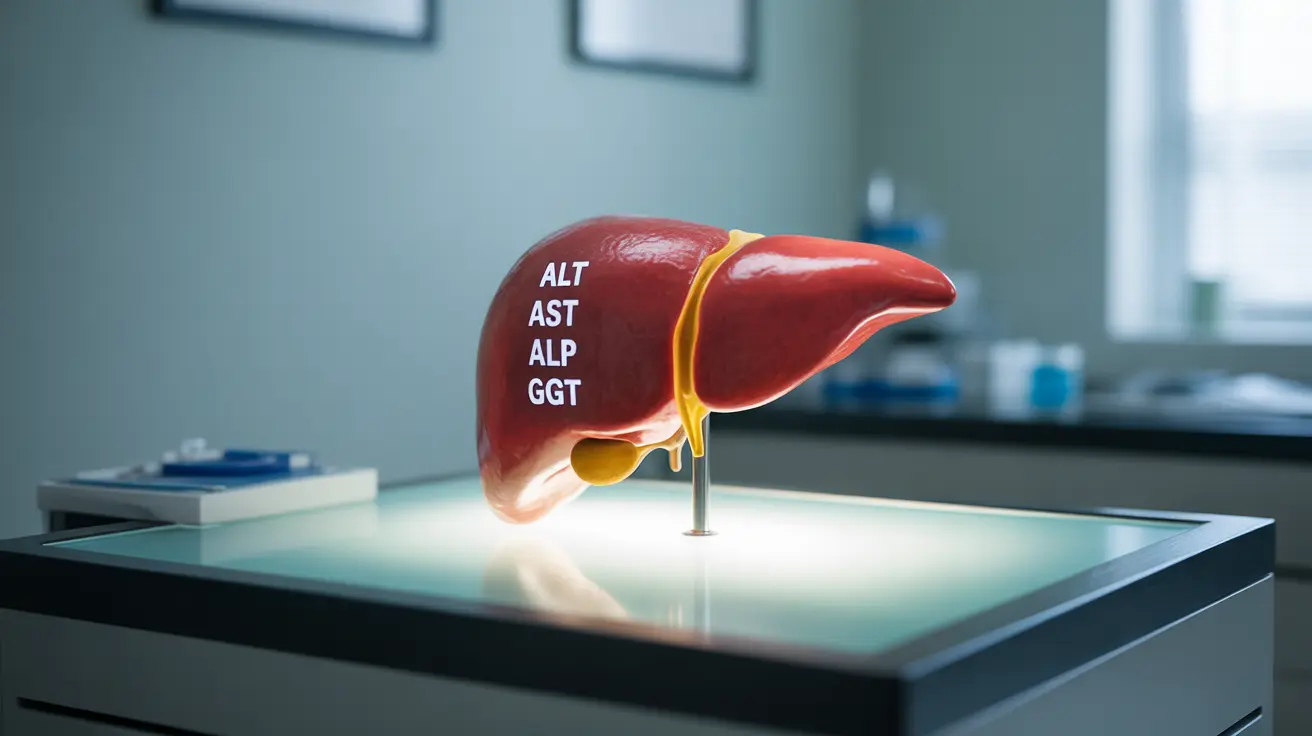When liver enzyme tests come back elevated, it's natural to worry about serious conditions like cancer. While elevated liver enzymes can sometimes indicate liver cancer or other malignancies, there are many other, more common causes that aren't cancer-related. Understanding the relationship between elevated liver enzymes and cancer can help you have more informed discussions with your healthcare provider.
This comprehensive guide explores the connection between elevated liver enzymes and cancer, including warning signs, diagnostic processes, and other potential causes of abnormal liver enzyme levels.
The Link Between Elevated Liver Enzymes and Cancer
Liver enzymes are proteins that help your liver perform vital functions. When these enzymes are found at higher-than-normal levels in your blood, it indicates that your liver cells may be damaged or stressed. While cancer can cause elevated liver enzymes, it's important to note that it's not the most common cause.
Several types of cancer can affect liver enzyme levels:
- Primary liver cancer (hepatocellular carcinoma)
- Metastatic cancer that has spread to the liver
- Bile duct cancer
- Pancreatic cancer affecting nearby liver tissue
Common Signs and Symptoms to Monitor
When elevated liver enzymes are related to cancer, they often occur alongside other symptoms. Key warning signs include:
- Unexplained weight loss
- Persistent fatigue
- Jaundice (yellowing of skin and eyes)
- Right-sided abdominal pain
- Loss of appetite
- Dark urine or clay-colored stools
Diagnostic Process and Medical Evaluation
Healthcare providers use a systematic approach to determine whether elevated liver enzymes are cancer-related or due to other causes. The evaluation typically includes:
Initial Testing
- Comprehensive metabolic panel
- Complete blood count
- Specific liver enzyme tests (ALT, AST, ALP, GGT)
Advanced Diagnostics
- Ultrasound imaging
- CT scans or MRI
- Liver biopsy (if necessary)
Non-Cancerous Causes of Elevated Liver Enzymes
Many conditions can cause elevated liver enzymes that aren't related to cancer. Common non-cancerous causes include:
- Medications and supplements
- Alcohol consumption
- Viral hepatitis
- Fatty liver disease
- Autoimmune conditions
- Heart failure
When to Seek Medical Attention
It's important to consult a healthcare provider if you have elevated liver enzymes, especially when accompanied by concerning symptoms. Prompt medical attention is particularly important if you experience:
- Severe abdominal pain
- Significant fatigue
- Unexplained weight loss
- Jaundice
- Dark urine or pale stools
Frequently Asked Questions
Can elevated liver enzymes be a sign of liver cancer or other types of cancer?
Yes, elevated liver enzymes can be a sign of liver cancer or other cancers that affect the liver. However, many other non-cancerous conditions more commonly cause elevated liver enzymes. Cancer is typically considered after ruling out more common causes.
What symptoms should I watch for if I have elevated liver enzymes that might indicate cancer?
Key symptoms to watch for include unexplained weight loss, persistent fatigue, jaundice, right-sided abdominal pain, loss of appetite, and changes in urine or stool color. These symptoms, especially when combined with elevated liver enzymes, warrant prompt medical evaluation.
How do doctors determine if elevated liver enzymes are caused by cancer or noncancerous liver conditions?
Doctors use a combination of medical history review, physical examination, blood tests, imaging studies (such as ultrasound, CT, or MRI), and sometimes liver biopsy to determine the cause of elevated liver enzymes. They typically investigate more common causes before considering cancer.
What are the common noncancerous causes of elevated liver enzymes besides cancer?
Common noncancerous causes include medications, alcohol use, viral hepatitis, fatty liver disease, autoimmune conditions, and heart failure. These causes are generally more frequent than cancer-related elevated liver enzymes.
When should I see a doctor for elevated liver enzymes and what tests might be done to check for cancer?
You should see a doctor when liver enzyme tests are elevated, especially if you have concerning symptoms. Initial testing typically includes comprehensive blood work and imaging studies. Based on these results, your doctor may recommend additional specialized tests to check for cancer or other conditions.




